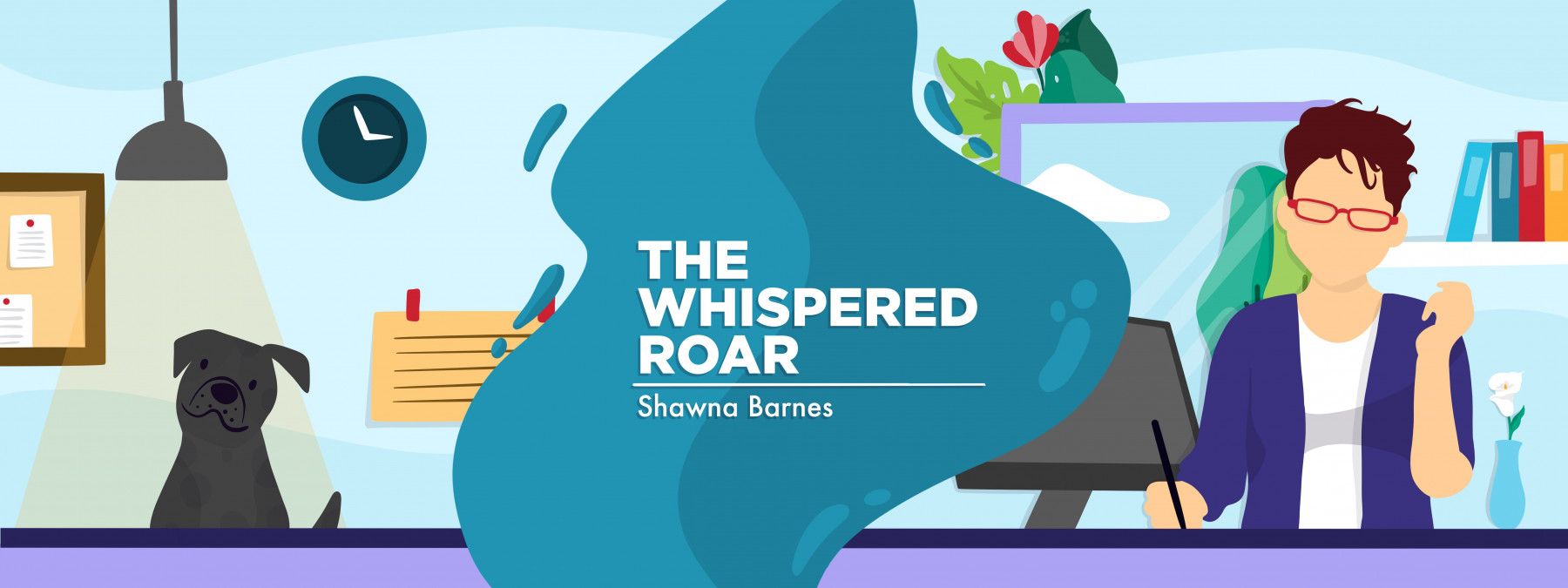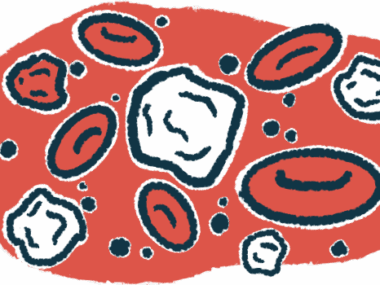Accepting Help and Receiving Kindness
Written by |

I wrote last week about how the inaction and silence of others can be deafening. The opposite is also true. When help is offered and the offer is followed up on, it can leave you speechless, humbled, and grateful.
And those who step up to help often are not whom we might expect. At least that’s been my experience.
Last December, I made the tough decision to close the print shop I’d owned for less than 18 months. I bought the shop at the start of the COVID-19 pandemic, when my myasthenia gravis (MG) was being better managed. But last August, I had my first myasthenic crisis, which resulted in me being in a special care unit (SCU) for a week. I realized I was asking too much of my body and had pushed it beyond its breaking point. I was unable to recover and decided to close the shop.
Soon after, my tribe started to show its true colors.
Opening the curtain
I’ve always been open about my health struggles so that I might help someone else avoid feeling alone. After my stay in the SCU, I began to be even more open to my customers about what I was going through. I needed them to understand why there were delays in getting their work out, and that my team and I were doing the best we could.
As open and vulnerable as I thought I’d been until then, I soon realized I could be even more open about what I was going through. The customers who become my friends on social media began to see me, and how much of myself I had invested in the shop and in serving their needs.
Karmic kindness
Friends and colleagues began showing up after I opened up to them. I became the recipient of some fun Secret Santa gifting that was unexpected and hard to accept.
When you’re always the one offering help, it can be difficult to be the one getting it. It can make you feel uncomfortable, but also humble and grateful. My husband and I received anonymous holiday cards with gift certificates and vouchers, and when we both came down with COVID-19 in the middle of January, people went grocery shopping for us, brought homemade goodies to our house, made us meals, and stepped in and up in ways that we never could have imagined or asked for. We didn’t ask for anything, but help arrived in droves.
Acceptance
It was — and still is — hard for me to accept help. I’m not sure which is more difficult, asking for help and not getting it, or not asking for help and getting it. Both feel like hard pills to swallow.
The help we get when we don’t ask for it can sometimes feel like it was given because people felt sorry for us. In order for me to be OK about accepting help, I had to remind myself how good it feels to be able to help a friend or loved one when they are in a bind. Helping someone makes us feel good. And in a time when we all need a reason to feel good and smile, accepting help from someone is the least we can do to help spread those good vibes.
Finding our tribe
As with anything, people come and go, based on our needs and theirs. Sometimes, the people we once thought would always be there for us when we needed them most can be the greatest disappointments in their absence.
But there will also be people who surprise us. Who show up to beat the drum for us when we can’t do it ourselves, and who encourage us to run, walk, or crawl to our own unique beat. There are people who expect us to reach out to them when they are at their most unreachable, and those who lie down in front of us and meet us where we are.
Our tribe will change, the support we receive will change, and we will change. We should always be willing and humble enough to accept the gifts we’re being given by whatever way our tribe gives them.
MG is a hard disease to live with, but one of the greatest gifts MG has given me has been to learn to accept. To accept life as it is, and to accept help in whatever unique way it’s being given, through whatever “love language” the giver speaks it.
This life we live is like a river, “ever changing as it flows.”
Myasthenia Gravis News is strictly a news and information website about the disease. It does not provide medical advice, diagnosis or treatment. This content is not intended to be a substitute for professional medical advice, diagnosis, or treatment. Always seek the advice of your physician or other qualified health provider with any questions you may have regarding a medical condition. Never disregard professional medical advice or delay in seeking it because of something you have read on this website.




Jim Patton
I' ve only been MG diagnosed, and have started treatment with a neurologist and PT, for about a month. I also have neuropathy in my feet, lower leg and hands, which, for a while, caused me to use a cane, due to my lack of balance walking. I also have some things I took for granted in using my hands, that I can't seem to do very well now. This coupled with some incontinence issues, as a result of prostate surgery three months ago (a TURP procedure), has been a VERY BIG challenge to me.
As you all know, some days are much better than other days.
But as of a few days ago, I no longer need a cane and my double vision has all but disappeared. I have no logical reason why these positive things have sort of all happened at once, and so fast. Yes my neurologist has me on a series drugs, to help with MG and the neuropathy, and some side effects, and the PT (I've been once since the evaluation) is to help the balance issue due to the neuropathy.
I will say I have tried my best to have a positive attitude about all of this, although I fail at it sometimes, especially on "bad"days. Being a realist, I've come to accept my MG, for whatever curves it may throw me. I my not like these curves, but "it is what it is". I've gone the the anger of it, and the "poor me" side of it too.
I too have found, like the post I just read, that giving is so much easier than receiving.
I have also learned (when I wore an eye patch and walked with a cane) that there's a lot of good people out there. These are strangers I'm talking about. They will often go way out of their way to help someone who appears to be physically challenged. Yes there's people out there that are in the game of life only for themselves, but to my eyes, they seem minisure to the good ones.
For me, my religion (christian and a student of metaphysics) has played a big role is all of this. But my belief system tells me, it's really got nothing to due with a God, goddess or higher power. Nor does praying, although it helps. The strength we need, when we need it, comes from within, from each and every one of us.
So I say dig deep, and face the fears and challenges we come across daily. I truly believe with the professional help we need from others, we can be the best we can be, knowing that won't be all the time. Be as positive and accepting as we can in the given moment.
I also believe that like attracts like (as do negative thoughts and things). So the more you do, or think a thing the more of that energy will come to you. As I said before, we can't do this MG thing alone. We will need help and support from wherever that comes from (doctors, nurses, relatives, friends and strangers). We need to try our hardest to accept that help when it comes.
Shawna Barnes
Thank you for sharing your thoughts and experiences, Jim! I agree that we receive what we put out and I strive to find the silver linings in everything. I'm so glad to see that you are doing better and I hope that the upward trend continues for you.